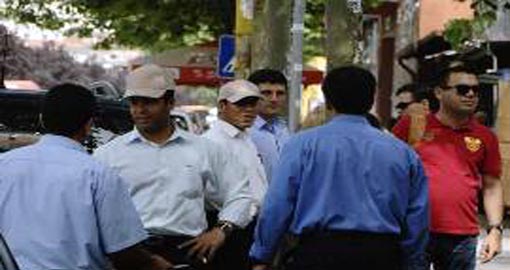Local observers in Tirana are reporting that the Mojahedin Khalq cultic terror group (MEK) is buying and creating several sandwich and kebab shops in the city and is using the MEK members to work in these fast-food  businesses.
businesses.
On the surface this may look like a positive move. In an article titled ‘Albania: What would a de-radicalization program for the Mojahedin Khalq involve’, it was suggested by cult expert Anne Khodabandeh that to “offer paid work opportunities which are age and ability appropriate” to these people could be part of a de-radicalisation package to reintegrate them back into normal life.
But this is not what is happening here. The businesses belong to the MEK and are not part of a rehabilitation scheme. There are no plans by Albanian authorities to de-radicalise them. This is important because it is known that the MEK members exist in a state of modern slavery and have never benefitted from pay or worker rights during their decades of membership of the cult.
Over 2500 radicalised MEK members are now living in Tirana as part of the group. The problem for the leaders is how to occupy them so they do not decide to leave. After all, in their former military bases in Iraq, their aim was violent regime change in Iran. That is what they trained for. In Albania if they cannot pursue this agenda they must be used in some other way.
The use of unpaid labour in business is of course very attractive. Such modern slaves need only to be fed and accommodated. The profit from their labour goes straight to the MEK coffers. The MEK members pay no tax, have no health or pension insurance and absolutely no employment rights. Certainly the Albanian authorities will want to investigate the crimes and corruption inherent in such behaviour. How are they getting away with it? Who is turning a blind eye? Who is abetting such behaviour?
In such a state, the MEK members are extremely vulnerable. They are victims of ruthless exploitation but are unable to even recognise let alone protest their predicament. With the right knowledge (about cultic abuse), Albania’s human rights groups would find a rich source of research material if they have the unwavering courage to delve into the MEK’s devious and, frankly, dangerous world.

